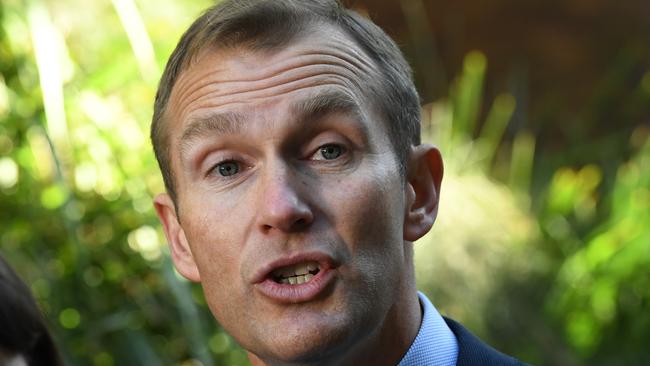Teaching legacy of James Cook and Arthur Phillip ‘guaranteed’ in NSW
Teaching the legacy of Captain James Cook and Governor Arthur Phillip is guaranteed to remain in NSW’s history curriculum.

Teaching the legacy of Captain James Cook and Governor Arthur Phillip is guaranteed to remain an important element of NSW’s history curriculum but NSW Education Minister Rob Stokes says “history, by its very nature, is a contested area’’.
Mr Stokes, appearing this afternoon before his first NSW parliamentary budget estimates hearing since becoming education minister, also ruled out any moves to ban the singing of Christmas carols in NSW schools and stressed that the controversial Safe Schools program — which no longer runs in the state after federal funding ceased -- “was at no stage a NSW government program’’.
Against the backdrop of the controversy raging over colonial-era statues, NSW Upper House MP the Reverend Fred Nile asked Mr Stokes if he could guarantee the teaching of history in NSW schools would respect the legacy and contribution of “founding fathers’’ such as Captain Cook and “the settlers who built this nation on the Aboriginal foundation’’.
Some education experts argue the national curriculum is weighted too heavily in favour of indigenous history while others argue the curriculum remains too crowded, forcing teachers to pick and choose subjects which can lead to a piecemeal sweep over Australia’s history.
Mr Stokes, who appeared alongside his Department Secretary, former ABC boss Mark Scott, reassured Mr Nile, the leader of the NSW Christian Democratic Party, that Captain Cook remained as part of the curriculum.
“I’m very happy to provide that guarantee. Obviously history, by its very nature, is a contested area and as one noted historian said the past is a foreign country, so of course the way in which we look at the past will change.’’
Mr Stokes said it was important the history curriculum also helped students develop the skills of critical thinking so they could make sense of different source materials, and whether information was coming from primary or secondary sources.
“Certainly in relation to the new curriculum in history in stage 6 (Years 11 and 12) there has been a real focus on an overarching narrative in relation to the development of modern liberal society and democracy,’’ Mr Stokes said.
“And so those important parts of our history that you speak of will continue to be important elements of the history curriculum.’’
Mr Nile also asked Mr Stokes about the sanctity of Christmas carols in the wake of South Australian education officials last week again ruling out any plans in that state to ban the singing of carols.
“There is certainly no move on foot to ban the singing of Christmas carols,’’ Mr Stokes said.
“Our Education Act is quite specific, that general religious education has been a feature of our public education system. We are reflection of the wider society and the traditions that have enriched this country and the celebration of Christmas is one of those.’’
During the estimates hearing in Sydney, Mr Nile also raised previous concerns voiced about Muslim prayer groups operating in schools “as to whether there might have been some radicalisation going on in those groups and there was some concern that children should not attend unless there parents gave a permission note’’.
Mr Scott pointed out prayer groups at schools were covered by religious implementation procedures which included several requirements.
“One is that parental permission is obtained for each student and that if any volunteers who are involved in that school that there are appropriate checks and safeguards that would apply to anyone coming into a school premises, then that would apply,’’ he said.
The requirements also include the need for “appropriate supervision by a member of the teaching staff’’. Mr Scott said the statewide policy was applied to fairly to all prayer groups of any faith in NSW schools.


